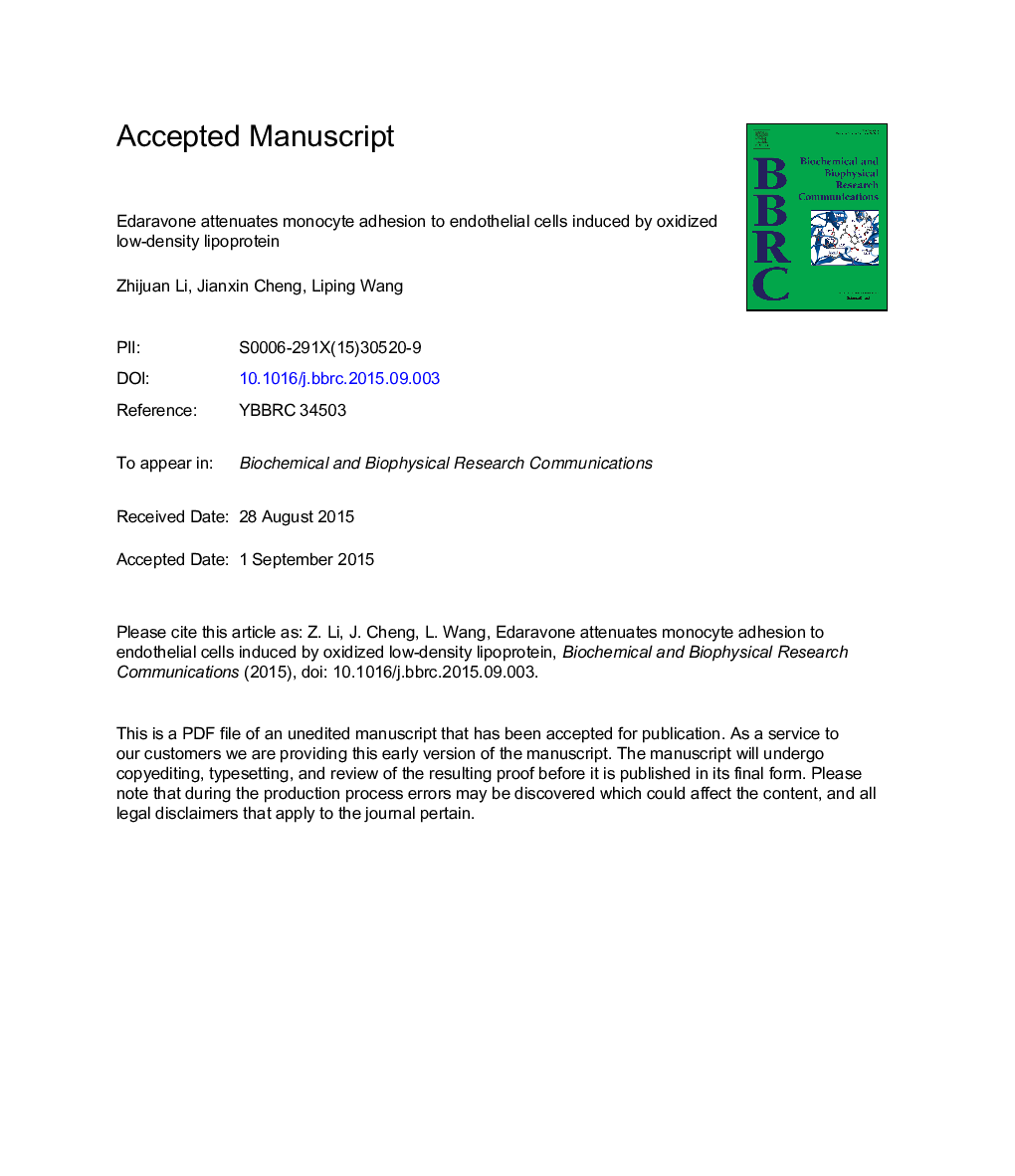| Article ID | Journal | Published Year | Pages | File Type |
|---|---|---|---|---|
| 10749441 | Biochemical and Biophysical Research Communications | 2015 | 19 Pages |
Abstract
Oxidized low-density lipoprotein (oxLDL) plays a vital role in recruitment of monocytes to endothelial cells, which is important during early stages of atherosclerosis development. Edaravone, a potent and novel scavenger of free radicals inhibiting hydroxyl radicals, has been clinically used to reduce the neuronal damage following ischemic stroke. In the present study, Edaravone was revealed to markedly reduce oxLDL-induced monocyte adhesion to human umbilical vein endothelial cells (HUVECs). The inhibitory mechanism of Edaravone was associated with suppression of the chemokine MCP-1 and adhesion molecule VCAM-1 and ICAM-1 expression. In addition, luciferase reporter assay results revealed that administration of Edaravone attenuated the increase in NF-κB transcriptional activity induced by oxLDL. Notably, it's also shown that Edaravone treatment blocked oxLDL induced p65 nuclear translocation in HUVECs. Results indicate that Edaravone negatively regulates endothelial inflammation.
Keywords
Related Topics
Life Sciences
Biochemistry, Genetics and Molecular Biology
Biochemistry
Authors
Zhijuan Li, Jianxin Cheng, Liping Wang,
